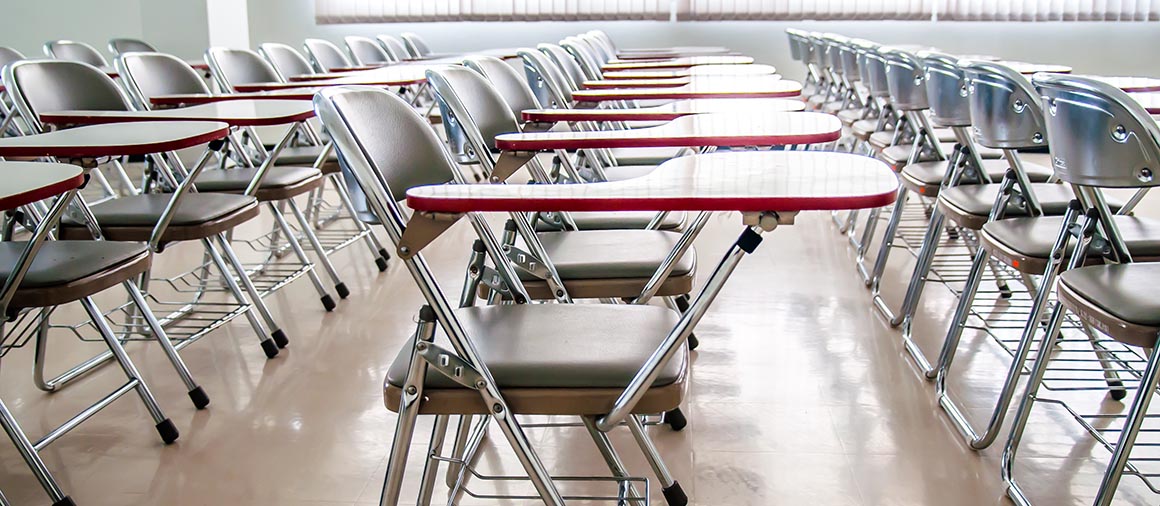Under pressure
The pressure that students face at school hit the headlines again recently. All the major teaching unions debated the levels of stress that students are under during their annual conferences over the Easter holidays.
Overwhelmingly, it was testing and exams that were cited as the biggest cause of stress amongst students, with 65% believing this to be the biggest issue. Other concerns were raised: an overcrowded curriculum, worries about getting into university and the volume of homework set. Similarly, 61% of respondents believed that the pressure on teachers and schools is filtering down to their pupils.
Therefore, it is important to know how best to handle the pressure of exams. It is best not to try and gloss over what you are about to face when you approach a set of exams. There is no point in saying, 'you shouldn't be stressed' or 'not to worry' about them because it is likely that you will feel stressed and worried. It is only natural to feel this way.
Equally, there is no point trying to dress exams up and pretend there is no pressure because there is pressure. Instead, the trick is to learn how to cope with the pressure and know how to handle it.
It's good to talk
As we've already said, it is perfectly normal to feel anxious and stressed out about exams. The important thing to remember is that other people will be feeling this way too - even if it feels to you at the time that nobody else is.
There are many things you can do to help you cope with anxiety - relaxation and distraction techniques can be very useful, sometimes just doing something different for a few minutes to take your mind away from the stressful situation is often enough.
Trying to deal with stress on your own and bottling it up inside will often make things worse. The best advice is to talk about your concerns. It's really helpful to talk and to get things off your chest - whether it's with a friend, parent or teacher. They will all be going through, or have gone through, the same things you are. They will understand. They will be able to help.
I'm going to fail
One of the features of anxiety is that our mind gets clouded with negative thoughts and messages. So you say to yourself, 'I'm going to fail' or 'I can’t do it so what’s the point?'
It can be useful to think like athletes sometimes do and use positive realisation techniques - imagining crossing the finishing line in first place or lifting a trophy. Picturing your ideal outcome can turn those negative thoughts into positive ones. So, imagine yourself in the exam, opening the paper and feeling confident enough to answer all the questions, or imagine results day when you pick up your fantastic results.
What if I don't get the grades?
One of the biggest pressures of exams is the feeling that the grades you will get will determine your entire future - That's a lot of pressure!
Of course, exams are very important. But it's also very important to keep in mind that there are always other options even if you don't get the results you need. It might mean that you have to spend a little bit longer trying to get to where you want to be. But, whether it's doing a re-sit of an exam, entering a course at a different level or choosing a different course altogether, every problem definitely has a solution.
I'm expected to do well
The pressure of having to do several exams in a few weeks can cause stress and anxiety but if you are expected to do really well in those exams too it can really add to the pressure.
If you have been predicted certain grades, you can feel like you will be letting your parents or teachers down if you don't achieve those grades. Again, talking to people and explaining how you feel like they are putting extra pressure on you can really help.
Put yourself first
Ultimately, your exams are all about you. Naturally, your teachers will be pleased if you do well and your parents will be proud of you too. However, you have to do the exams, the results will be your results and it is your future.
Therefore, it is vital that you put yourself first. On one hand, that does mean that you need to make sure that you put yourself in a position to do your best: working hard at school, planning for revision and sacrificing a bit of social time so you can focus on your exams.
On the other hand, it means talking about your anxieties and stresses with friends, teachers and parents. It means talking to your family to let them know how they can make studying easier at home. It means talking to your teachers and asking for advice when you need it.
And it means keeping a sense of balance. You do still need some down time. You do still need the odd treat here and there.
Work hard but don't deprive yourself of the things that make you really happy. If you are happy and content you won't feel the pressure of exams as much. And that means you are much more likely to do your best.




















